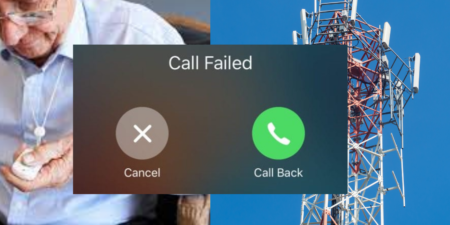YOU may already be aware that the 3G network will be no more by the end of 2024. The shutdown will happen in stages as companies decommission the infrastructure needed to provide 3G coverage.
TPG, who operates Vodafone, is leading the charge and will turn off its 3G on December 15 this year. Telstra plans to follow suit in June next year, and Optus has said they will continue until September 2024.
What is 3G
‘3G’ describes the third generation of mobile network technology. 3G was faster than its predecessors and allowed people to access the internet using a mobile device for the first time.
This is now far from the cutting edge of technology and 3G has been superseded by 4G, and now 5G, technology. There are quite a few technical differences, but 3G is much slower and is more prone to interference.
Many devices use 3G to connect to the internet. Devices that were not designed to use 4G or 5G connectivity will no longer work when 3G is turned off. Some devices will need to have some settings changed to work.
Why is this the end of 3G?
Mobile networks use radio frequencies to send data. If you have heard the term ‘spectrum’ but aren’t sure what it means, it refers to the entire range of radio frequencies. This is a limited resource – once the entire spectrum is in use, that’s it.
Providers pay for a license to use part of the spectrum to provide their services. These can be hard to come by and are very expensive. Licences are controlled by the Australian Communications and Media Authority, who also decide what proportion of the spectrum can be used for different purposes.
TPG, Telstra and Optus each have a license to use a part of the spectrum.
This only gets more technical from here, but what it all adds up to is the end of 3G. If telcos want to offer more 4G and 5G coverage, which provide faster services, they need to stop using their limited part of the spectrum to provide 3G.
TPG, Telstra and Optus have all stopped using one ‘band’ for 3G as of 2019, which is now used for 4G. It is likely that the remaining frequencies that are currently used to provide 3G will instead be used for 5G.
How this might affect you
If your device is more than five or six years old, chances are it will not be able to use 4G or 5G. Some newer devices may be able to use these networks but might require them to be manually turned on.
Devices that are not enabled to use 4G or 5G networks will no longer work after the shutoff date – not even to make emergency calls.
Other than mobile phones, there are a range of devices that might need to be checked. These include tablets, baby monitors and security cameras.
Worryingly, many medical alarms which people may wear around their necks or carry with them will also be rendered useless. Whilst companies that provide these alarms have been reaching out to inform their customers of this change, there are many reasons why this information may not reach those who need it.
Advocates are urging people to contact their providers, check devices and to speak with others that might not yet be aware.
For those living in regional areas, 4G coverage is not yet as widespread as 3G and 5G coverage may not be available at all. Repurposing the existing 3G frequencies will help with this, but the roll out will take time and this only benefits people whose devices are compatible.
How to find out more
If you are worried that your device will not work anymore, you can talk to the manufacturer or service provider. If you know the model number of your device, you can look it up on Google or another search engine.
If you live in a regional area and are unsure if you will still be able to use mobile data when the 3G network is turned off, you can contact the Regional Tech Hub through their website or by calling 1300 081 029.
Accessible Telecoms is an independent organisation which helps older people and people with disability to get advice on products and services. You can find them here or call them on 1800 442 300.
